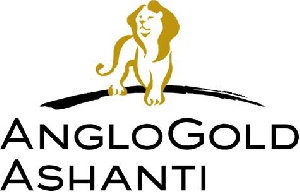 The lecture, held in October each year, is a major event on the University
The lecture, held in October each year, is a major event on the University
AngloGold Ashanti Ghana Limited in collaboration with the Institute of African Studies, at the University of Ghana has organized its 6th public lecture on business in Africa with the view of crystallizing the future Africa.
The lecture, which is held in October each year, is a major event on the University’s academic calendar.
Delivering the public lecture on the theme " Africa Rising : Wheel of fortune or genuine social transformation", Mr. Kweku Bedu-Addo, Chief Executive Officer (CEO) of South and Southern Africa Region Standard Charted bank said a well-functioning economy relied on the domestic investment.
He said it looks like everything has been done to undermine the very framework that promoted domestic investment.
Mr. Bedu-Addo mentioned agriculture, housing, transportation and health care as the major areas that affected the wellbeing of citizens.
He explained that Africans agriculture was still subsistence largely underpinned by very inefficient market arrangement that depressed farm gate prices to rural producers, but inflate retail prices to urban consumers with scant attention to packaging, processing and extension of shelf life.
According to him, food security and inflation were suboptimal across African and stressed that agriculture was the least resistance path to growth and job creating for the teaming youth.
He said it has to be productivity driven as the entire value change developed to absorb excess labour.
Mr. Bedu-Addo said he had seen what agriculture is in other parts of African and frankly within the Ghanaian context they were not even off the blocks at all. "We don't apply science, we act as self-agriculture extension officers, we talk a lot , long on talking short on execution" He said
The CEO said in Zambia for instance before every farming season a soil scientists is employed to analyze the soil fertility and base on that they recommend the type of fertilizer and the appropriate dosage to apply. He said the hydrologist is also invited to check on their dams and the farmers go for improved seeds, adding that these entire preparation take place before production begin.
He asked how a country could have food security if its people were using "back breaking techniques to farm and everything is in a mess".
Touching on housing, Mr. Bedu-Addo emphasized that there was large population growth with little or no provision for the low income segment of the population. This he said has given rise to rapid growth of urban unplanned settlement with predictable collapse on sanitation standards.
He added that state own health facilities were over-burdened and under resourced while health personnel over worked and are poorly remunerated.
Having worked in the banking industry for seven years, Mr. Bedu-Addo said there was no balance sheet committed to agricultural, housing and health because the value chain was so disjointed that they don't know where to put loans in and when to get it out.
The CEO pointed out that they may put monies in mining, oil and gas but it's difficult to invest such money in agriculture and called on the government to sit up and work with other stakeholders to organize the value chain.
Mr. Eric Asubonteng, General Manager of AngloGold Ashanti Obuasi mine said the firm has been funding the Institute of African studies’ Kwame Nkrumah chair since its launch in 2007. He said the company was delighted at the opportunity to contribute to the knowledge of enhancement not only at the Institute of African Studies but the university community and beyond.
He commended Professor Kofi Anyidoho and Prof. Emeritus Jacob Gordon, for nurturing and propelling the chair to this height and Prof. Horace Campbell, the current chair for graciously accepting to take up the mantel.
Mr. Asubonteng stated that in line with one of the institute's core values, which is to promote transformational leadership and governance, they believed such lectures, would stimulate them and raise the national consciousness about the need to carry out their business in ways that addressed their peculiar needs.
The General Manger said as a society, they were confronted by challenges of unequal opportunities, perceived or real corruption, poor state of their health and educational sectors.
He said for AngloGold Ashanti any discussion around Africa rising would be incomplete without touching on the contribution of mining to the national development.
Mr. Asubonteng said it was for this reason that sustained development remains an integral part of their operations in line with one of their most cherished values, which is to make the communities which they operate better.
He explained that their Obuasi mine was currently undergoing restructuring, with the aim of making it more sustainable in the future.
He said Obuasi has therefore not been in production for close to two year's running and indicated that they have not reneged on any of their social commitments to the communities that they operate in during this challenging periods.
In their little way, the General Manger said they have implemented a number of social interventions that were ultimately geared towards improving livelihood, especially in the areas they operate.